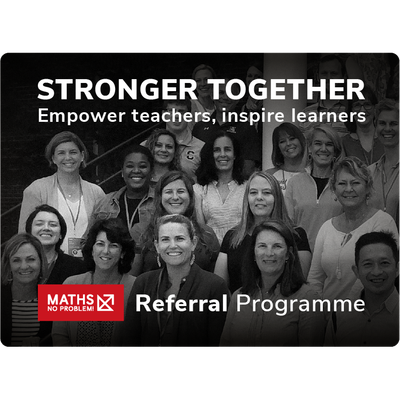5 effective extension questions to test advanced learners’ understanding
Editor’s Note:
Transcript has been edited for clarity.
How can we be sure children deeply understand mathematical concepts? Dr Yeap Ban Har shows us five effective extension questions to test advanced learners’ understanding.
Let me now indicate to you, that if the students are really, really good, they can do five things. Children who can do computation fast — either because they know it, or they figure it out fast. These are some things they should be able to do, in addition to getting the answer.
1. Are learners able to give you a physical model?
To put it simply, are they able to tell you a story? Can they look around themselves and say,
“oh, this could be… Oh, like our class… There are 23 children in our class and maybe 5 of them went to the bathroom.”
(Too many, but nevermind.)
“How many of us remain in the class?”
They can kind of tell you a story, because they can link the calculation they have done to a real-world model — let me just call that a physical model. So that’s one thing they can do. So you are right. If they can compute quickly, is it beneficial to ask them,
“yes, that’s good. But can you please show a friend who doesn’t get it using the Dienes blocks?”
They should be able to do it. If they are not able to do it, that means they are not truly advanced.
So they did not need to do it, but when requested, they can always do it. So the physical model could be a story or could be the concrete materials that other people are using.
2. Are learners able to give you a visual model?
So for example, when they learn 3 times 4 and some people would just rattle off,
“oh it’s 12.”
Fine, they remember it. It’s quite good that they remember it. But when asked,
“but can you draw me a picture to show 3 times 4?”
And they might then say,
“yes, it’s a little bit like if there are 4 people in a row and we have 3 rows of 4 people, isn’t that a little bit like 3 times 4.”
So children who are truly advanced should be able to show the visual model. So the question is,
“is it beneficial for them to draw a picture, even though they don’t need to?”
Yes, they should be able to draw a picture when requested. I don’t think they would draw it when they’re working it out. But once in a while, if you ask them to do it, they should be able to do it.
Boost Your Practice with FREE CPD
Receive a CPD boost every time you refer a school! Both you and the referred school will earn a full day of CPD and 2 free places on our 3-day Essentials of Teaching Maths Mastery course (valued at £1700).
Get started on helping struggling schools reach maths success now!

3. and 4. Can learners give their own oral explanation? Can they give their own written explanation?
I suppose one of them is oral. The other one is written. So learners who are truly advanced are always capable of explaining.
“Oh, how do you get 18?”
And they will say,
“oh, it’s like breaking 23 up into 10 and 13. And you took 5 off the 10. So final answer, 5 and 13”.
So they explain it orally and if they’re capable of writing when they are older, they should do likewise in the written form, like in a journal.
5. Can learners find ways to challenge themselves?
So if you ask them,
“okay, I think you’ve got 23 minus 5 easily. Can you invent another method to do 23 minus 5?”
I know you already know how to do it, but the method you did, actually came from me. So you are a copycat. But you are really smart, I don’t think you need to copy me. So just challenge yourself.
“Can you invent a new way of doing subtraction… and since you invented it, name it after yourself.”
So these are some things that advanced learners should be able to do.